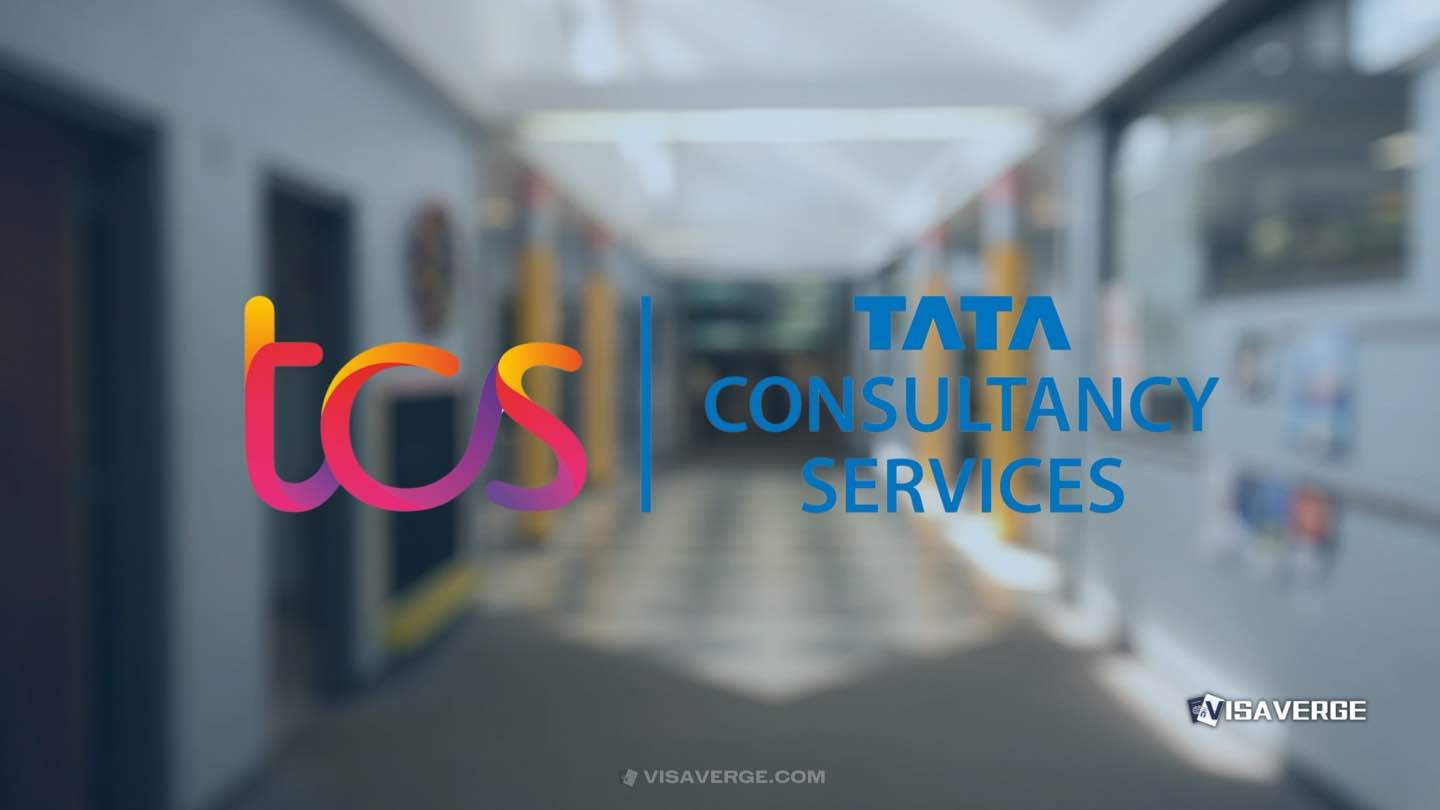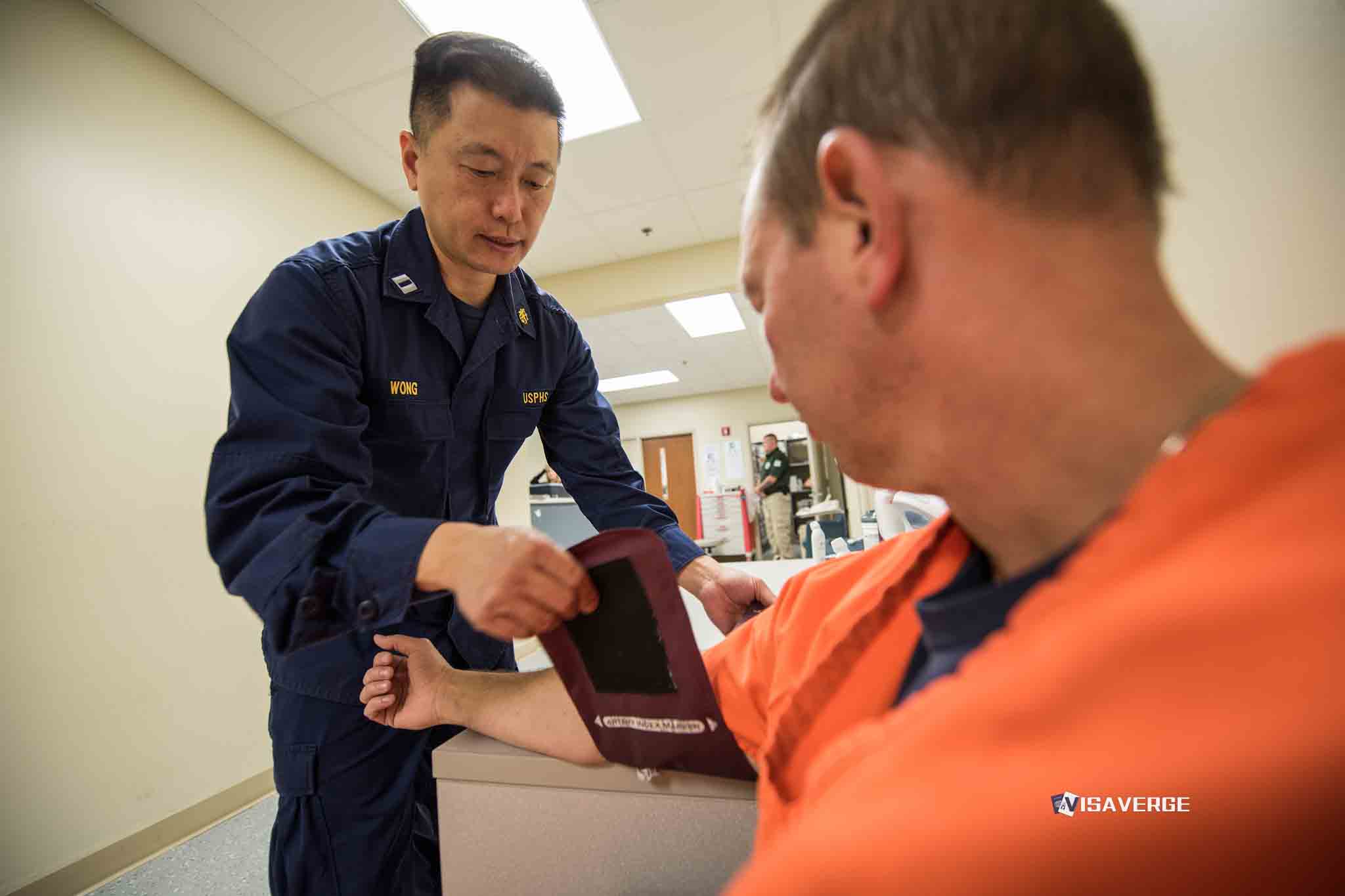(UNITED STATES) Tata Consultancy Services said it has minimal reliance on H-1B visas in the United States 🇺🇸, even after receiving more than 5,500 H-1B approvals for 2025. The Indian IT giant reported that only about 500 associates are currently onsite in the U.S. on H-1B visas, underscoring a delivery model that leans heavily on offshore teams and growing localization efforts. The company added that its operations remain flexible and adaptable amid policy shifts, including a new $100,000 annual fee per new H-1B visa that took effect on September 21, 2025, for a one-year period unless extended.
The company’s message is clear: even with a large number of approvals, the share of its U.S. workforce on H-1B status is small. TCS described a delivery setup where most work happens in global centers, supported by a smaller onsite presence in the U.S. That structure, the company said, allows it to adjust quickly to changes in U.S. immigration rules without major disruption to client service or project timelines.

Policy backdrop and company response
Under the policy in force since late September, employers face a $100,000 annual fee for each new H-1B visa approved during the 12-month window. The stated aim is to curb perceived abuse of the program, especially by high-volume IT outsourcing firms.
TCS acknowledged the cost impact yet stressed that its staffing mix in the U.S. already limits exposure. Company leaders pointed to a multiyear push toward localization, hiring more U.S. workers and using blended teams, which reduces the need to place large numbers of H-1B staff onsite.
According to analysis by VisaVerge.com, the fee’s short duration and targeted scope may lead large employers to rethink which roles truly need H-1B sponsorship in the near term. TCS’s comments align with that view: the firm can reroute work to offshore hubs, expand local hiring, or use other visa categories where appropriate, while keeping U.S. client delivery stable. The company said its model is adaptable and built for policy shifts, not just cost shocks.
TCS has a global workforce of roughly 593,000 employees (as of September 2025). Only a small fraction are placed onsite in the United States. That footprint matches the firm’s long-standing offshore-heavy strategy and helps explain why the mismatch between 5,505 H-1B approvals and only about 500 H-1B holders onsite is not unusual for its business. Approvals provide optionality for staffing; they do not guarantee deployment at U.S. client sites.
The company has also been reshaping its workforce, citing about 12,000 layoffs globally tied to skills gaps and a mix of voluntary and involuntary departures. TCS said these changes are separate from U.S. immigration policy and part of broader restructuring. Even so, in a year when a new H-1B fee raises costs across the industry, a leaner bench and sharper role alignment may further reduce pressure to place visa holders onsite.
Key takeaway: TCS presents itself as positioned to absorb the fee’s impact because of its offshore-heavy delivery model, ongoing localization, and staffing flexibility.
What the fee means for employers and workers
For employers planning new H-1B hires over the next year, the $100,000 annual fee raises the bar on cost and planning. Companies will likely weigh:
- Which roles require onsite presence versus offshore delivery or remote support.
- Whether localization through U.S. hiring can meet client needs without relying on new petitions.
- How to time project ramps to avoid unnecessary fee exposure during the fee’s 12-month life.
- The balance between short-term contracting and longer-term in-house teams.
Workers may feel the effects differently:
- Current H-1B employees are not the target of this fee; it applies to new H-1B approvals during the policy window.
- Applicants hoping to start U.S. roles in late 2025 or early 2026 could see slower onboarding or alternate placements if employers pause petitions.
- TCS signaled it can shift projects and assignments to match cost and policy realities, which may mean more offshore roles in the near term and selective U.S. placements where client need is strongest.
TCS emphasized that its client work in the U.S. remains stable. With offshore teams handling a large share of delivery, onsite roles tend to center on consulting, architecture, and client engagement rather than bulk coding or support. That concentration helps the firm keep the onsite H-1B population small, even when overall H-1B approvals are high.
Industry impacts and likely outcomes
Industry watchers note that policy shocks often speed up structural shifts that were already underway. TCS’s localization drive—more U.S. hires, deeper campus recruiting, and training—fits that pattern.
Possible scenarios:
- If the fee ends after twelve months, some firms could revert to prior staffing habits.
- A year of higher costs can nonetheless push permanent changes in team composition and delivery locations.
- If the fee is extended, firms with offshore-heavy models (like TCS) may be better positioned to absorb the impact without disrupting client delivery.
The policy’s short timeline also matters. Employers now face a window where each new H-1B approval carries a $100,000 annual charge. If the fee is not extended, filings could surge later, creating a stop-start rhythm that complicates planning. TCS suggested its flexible model reduces risk from this timing uncertainty by relying on offshore centers and varied staffing channels.
For readers seeking official guidance on H-1B program rules, including eligibility and general fee structures, the U.S. government maintains an overview page on H-1B specialty occupations. See the USCIS H-1B resource here: USCIS H-1B Specialty Occupations.
TCS’s workforce stance and future tests
TCS declined to link its restructuring to the new fee, saying the layoffs were driven by skills mismatches and standard workforce adjustments. The company repeated that its scale—nearly 600,000 employees worldwide—and offshore-first approach give it ample room to adapt without reducing service quality for U.S. clients.
That stance will be tested if the fee extends beyond the first year or if added rules tighten worksite placements or third-party deployments. Still, based on current policy, the firm appears positioned to keep the onsite H-1B count near 500, while still tapping approvals to create staffing options.
Clients in sectors like banking, retail, and healthcare, which depend on reliable delivery, will watch closely. TCS’s model allows distributed teams to meet service levels, with onsite leads guiding offshore execution. That mix tends to buffer project schedules from visa shocks.
If anything, the localization trend could grow, bringing more U.S. citizen and resident workers into high-touch roles, while complex build and run work continues in offshore hubs.
What this means for H-1B applicants
For H-1B hopefuls, the message is mixed:
- The fee does not block sponsorship, but may cause some employers to slow new filings during the 12-month window.
- Candidates with strong niche skills, client-facing experience, or clearance-ready profiles may still see robust demand.
- Others might find more opportunities in nearshore or offshore delivery centers until cost headwinds ease.
In the end, the company’s main point stands: despite being a top recipient of H-1B approvals this year, TCS reports limited actual dependence on H-1B visa holders onsite in the U.S. and says its business model is flexible enough to absorb rule changes. That approach aligns with a broader industry shift toward diversified staffing, stronger localization, and resilient delivery chains that can handle policy swings without losing momentum.
Frequently Asked Questions
This Article in a Nutshell
Tata Consultancy Services (TCS) reported over 5,500 H-1B approvals for 2025 but said only about 500 employees are onsite in the U.S., reflecting an offshore-centered delivery model and ongoing localization. A new $100,000 annual fee for each new H-1B approval, effective September 21, 2025 for 12 months, raises employers’ cost of bringing new H-1B talent onsite. TCS said its mix of offshore capacity, local hiring efforts, and flexible staffing channels limits exposure and allows quick adjustments—rerouting tasks offshore, hiring locally, or using other visa categories. The company also noted roughly 593,000 employees globally and about 12,000 recent layoffs tied to skills alignment, separate from immigration policy. Industry observers say the fee may accelerate localization, change role prioritization for H-1B sponsorship, and create timing uncertainties if filings surge after the fee expires.








